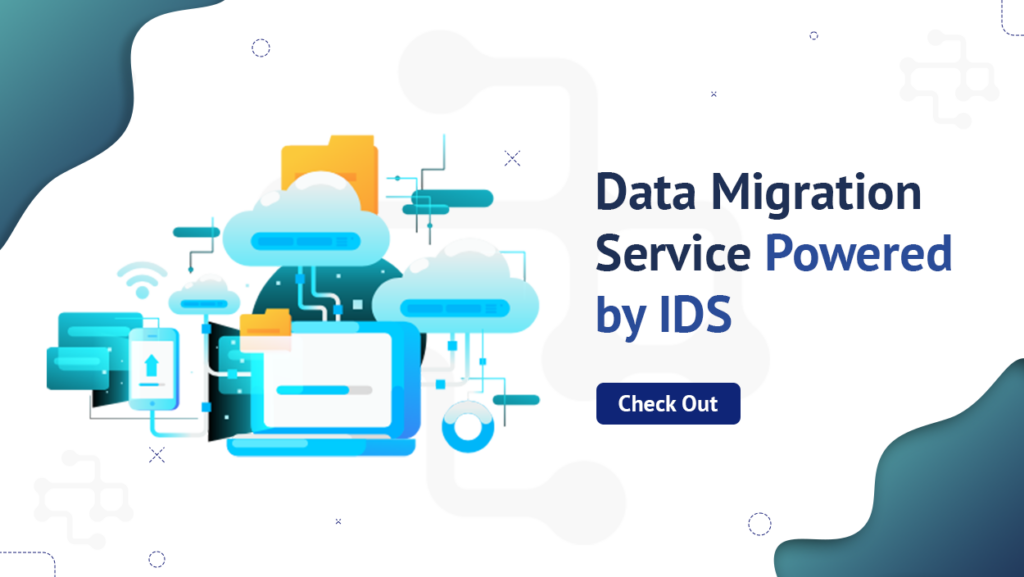
Data migration in healthcare is the process of moving patient and medical data information from one storage site to another. This migration in the healthcare industry is driven by the need to move Electronic Health Records (EHRs). Specifically, this system stores and manages all the information about a patient in a single and secure location. Migrating data to more advanced storage with restricted access and analytical features is one stage of EHR implementation.
EHR data migration is often triggered by the need to abandon a legacy system that doesn’t have enough capacity to be effective in the business environment of a hospital. Due to the specific issues of the EHR data migration process, you must choose from three types of healthcare data migration tools, depending on the use case and final destination of your data.
Phases of EHR Data Migration
After you are done with a data migration tool, it’s time for the migration process. Below is a glimpse at a 4 phase healthcare data migration process.
- Data Analysis- According to most migration plans, this is the first step toward seamless data migration. You must analyze the data, find pieces of information you no longer need, highlight those of the highest value, and get an impression of the data format currently followed.
- Data Structuring– EHR data often comes in different formats, so you must structure and classify it. At this stage, keep your future business goals and data use cases in mind, since the better the structure you achieve here, the more effectively you will be able to work with your data after your EHR data migration is complete.
- Data Conversion– The next stage of EHR data migration will be to convert your data into a single format suitable for a seamless and safe migration to the new storage solution.
- Data Migration– Migration is the last stage, , during which the data of an electronic health record system is moved piece by piece.
Challenges of Data Migration in Healthcare
Lack of Planning
One of the most common challenges of data migration is the lack of strategic planning, hindering trusts and practices from reaping the rewards of their new system. The process of migrating data in healthcare is complicated. Those in charge of the project need a well-thought-out strategy that makes sense for your practice, trust, or hospital’s data.
This plan should answer questions around how the healthcare data migration will benefit the organization, what must be migrated, from which database(s) or source(s), and how much it will cost. It’s important to have a plan to avoid risking delayed deliveries and performance. A migration strategy will assist project navigation and establish goals, ultimately leading to better results.
To ensure success, planning will include the project timeline, KPI’s, technical considerations, and business considerations. Otherwise, those who must understand application and security requirements, won’t be able to support and implement the desired changes.
Data Quality
Any data migration within health industries necessitates an understanding of the data you wish to transform and utilize as well as data quality assurance post-migration. Ensuring that patient data and statistics are updated regularly is key to providing reliable healthcare to distressed patients.
Data quality in a database is an important challenge of data migration. If the healthcare database has data quality issues, it would be a nightmare to migrate the data, only to find that bad data was moved. In this case, the migration, and all the hard work, resources, time, planning, and money invested will have been wasted.
Data Privacy/Compliance
A single data breach can cost healthcare providers at least $7 million, if privacy and data compliance are ignored. Before migrating data in healthcare transformations, data handlers could spot an issue and perform a quick fix to a record. However, in doing this, they are unintentionally committing a data breach. One individual, one sensitive patient record, could mean millions in potential fines.
If your healthcare organization cannot afford to outsource to large expensive companies, IDS provides affordable migration consultative advice. Our team helps provide seamless healthcare data migration and reduce the cost and time by 50%, using our migration and data quality assurance software.
Get in touch to find out more about our prices, tools and plans for data migration services.
